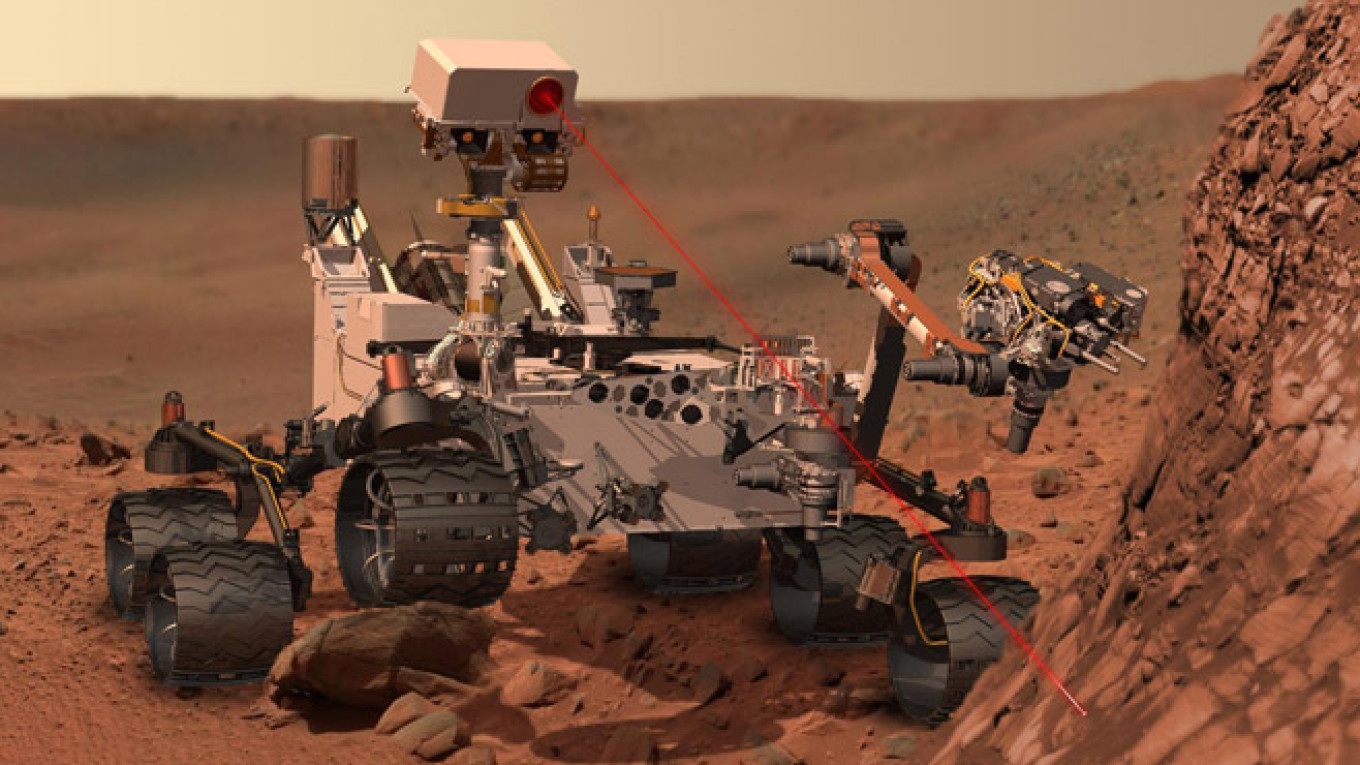NASA will not use any Russian equipment to build its newest Mars rover, but a top Russian scientist said Sunday that political tension between Russia and the U.S. over the crisis in Ukraine had nothing to do with the decision.
A Russian-made instrument called NORD — which is an upgraded version of the neutron detector used aboard NASA's most recent Mars rover, Curiosity — was simply not up to scratch, said Lev Zeleny, head of the Russia Academy of Science's Institute for Space Studies.
NASA announced a tender last year to select the seven instruments that would be used by the new rover, which is simply known as Mars 2020 — a reference to the scheduled date of the mission.
However, when NASA presented the chosen instruments at a news conference in Washington last week, no Russian instruments were on display, prompting observers to jump to the conclusion that the crisis in Ukraine was beginning to unravel the vaunted U.S.-Russia space partnership.
"If you participate in a contest, it isn't guaranteed that you will win," Zeleny told reporters at the annual assembly of the International Committee on Space Research, which is being held in Moscow this year.
"There were a number of other applications, and it didn't go our way. I wouldn't want to link it to political reasons," he said.
NASA's leading Mars specialist, Michael Mayer, said at last week's news conference that the agency had received 58 proposals from companies around the world for their equipment to be fitted to the new rover. In the end, NASA opted for scientific equipment developed by U.S., Spanish, French and Norwegian scientists.
Mars 2020 will be based on the Curiosity rover, which successfully landed on the red planet in 2012.
Russia's space agency Roscosmos is currently working on a Mars probe with the European Space Agency, or ESA. NASA was originally slated to be the ESA's partner on the project, but budget cuts in Washington forced the U.S. space agency to withdraw from the program. Europe turned to Russia, which was eager to get involved in a new Mars project following the loss of the Phobos-Grunt probe in low-Earth orbit in 2011.
See also:
Russia Regains Contact With Geckos in Outer Space
Contact the author at bizreporter@imedia.ru
A Message from The Moscow Times:
Dear readers,
We are facing unprecedented challenges. Russia's Prosecutor General's Office has designated The Moscow Times as an "undesirable" organization, criminalizing our work and putting our staff at risk of prosecution. This follows our earlier unjust labeling as a "foreign agent."
These actions are direct attempts to silence independent journalism in Russia. The authorities claim our work "discredits the decisions of the Russian leadership." We see things differently: we strive to provide accurate, unbiased reporting on Russia.
We, the journalists of The Moscow Times, refuse to be silenced. But to continue our work, we need your help.
Your support, no matter how small, makes a world of difference. If you can, please support us monthly starting from just $2. It's quick to set up, and every contribution makes a significant impact.
By supporting The Moscow Times, you're defending open, independent journalism in the face of repression. Thank you for standing with us.
Remind me later.


